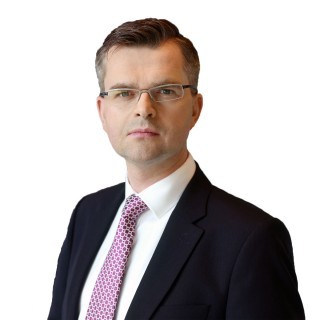Poland: A change in the Council; hawkometer update
The departure of Rafal Sura may weaken the dovish camp, although the timing of his departure is uncertain. With or without Sura, the Monetary Policy Council's bias should turn more hawkish
A departure from the Monetary Policy Council
According to the Polish News Agency, MPC member Rafal Sura is to join the Supreme Administrative Court. His candidacy has already passed the vote in the National Council of the Judiciary and will be presented to Poland's President for approval.
We see Sura as a dovish member in the current MPC. The date of his departure is uncertain. While his candidacy has been approved by the National Council of the Judiciary, approval by the President may take a long time.
Recent comments have suggested that the hawkish camp has been strengthened by Professor Zyżynski, who has called for ending the asset purchase programme after the lockdown is lifted and also supports signalling a rate hike in the coming months. We have now seen four out of the ten MPC members calling for the start of monetary policy normalisation. Without Sura (we still don’t know when he might leave) the dovish camp would be even smaller, with four hawks and five doves – please see the updated hawkometer.
Inflation should remain elevated
With or without Sura, our CPI forecasts call for the start of monetary policy normalisation. We see average CPI in 2021 at about 4% year-on-year, however, in the next few months CPI should reach 5% YoY, well above the upper boundary of the National Bank of Poland's target (2.5%+/-1%). So far, a significant part of the inflation rise has been caused by regulated prices (garbage collection and electricity), as well as the low base in oil prices. But there are more than just supply factors at play.
We have been arguing for some time that the recovery from the Covid-19 recession is going to be different from previous cycles. This time, households have the funds to return to higher spending quickly once the pandemic passes. The lagged impact of the recession on the labour market and inflation should be quite limited this time round. Also, subsequent inflation readings in economies more advanced in reopening point to CPI upward surprises.
In our opinion, the average annual CPI inflation should also remain at an elevated level of 3.4% next year.
In our opinion, the average annual CPI inflation should also remain at an elevated level of 3.4% next year. This is an effect of the unfavourable GDP structure in recent years, with a decreasing share of private investment. We believe that additional inflationary pressure will also be generated in 2022 by fiscal stimulus from the Recovery Fund and the local budget.
Elevated inflation has forced a turnaround in the MPC's communications, which have become less dovish. For the time being, the prevailing view among most of the Council is that this is a temporary phenomenon, but we believe this is already changing and the next NBP inflation projection should force the NBP to act. We expect the first rate hike in Poland to take place in the first half of 2022 (7 out of 10 MPC members see their terms expire in 1Q22). However, we do not rule out a rate hike at the next inflation projection update in November 2021.
This publication has been prepared by ING solely for information purposes irrespective of a particular user's means, financial situation or investment objectives. The information does not constitute investment recommendation, and nor is it investment, legal or tax advice or an offer or solicitation to purchase or sell any financial instrument. Read more
Download
Download article